Mental Health Issues After A Disaster
Mark and I took a C.E.R.T. class several years ago that discussed several emergency-related issues, including dealing with mental health issues after a disaster. Remember that we are not doctors or involved in any medical field, but I try to pass on to my readers information that has helped in my emergency prepping efforts. The initials CERT stand for Community Emergency Respond Team; in other words, support as first responders in our neighborhood after natural disasters.
You can imagine chaos if and when we have a disaster. In an unforeseen emergency, most medical personnel will likely be called to the hospital or medical clinics to treat all the injured. Depending on how bad the disaster is, they may also be called to local schools to care for those who are hurt.
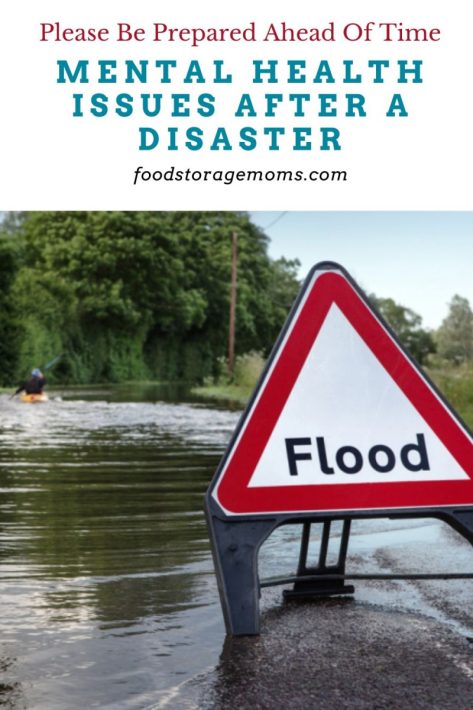
Here’s the deal: we had the most wonderful doctor come and tell us a few tidbits on how to deal with minor mental health issues. I can still picture the woman standing there and talking us through some statements that can help or traumatize people even more. I’ve outlined the topics we discussed below.
We need to be prepared for those people who live by us with mental health issues who are dependent on their medications. If the pharmacies are closed or the roads are shut down, where can we direct them to get help if help is available?
Emergency Preparedness Meetings
If you have monthly emergency preparedness neighborhood meetings, please suggest that all families consider any medications they take and see if they can get extra inventory by paying cash for the prescriptions. I realize diabetes is a big issue as well, but today, I’m only talking about mental health issues.
For some medications, doctors won’t prescribe 90 days’ worth. I understand that, but it doesn’t hurt to ask. I realize some insurance companies won’t pay for 90 days, but it’s still worth checking on now before we need those medications. Yes, drugs are expensive, but peace of mind means everything to me.
I have a few friends who pay cash upfront for medications that will last a year so they know for sure they’ll have the medicines throughout the year and thus any disaster period because they would die without them. It’s surprising how much cheaper prescriptions are if you pay cash over using your insurance. Sometimes, the price is more affordable than the co-pay.
But don’t get me started on that soapbox. Please educate yourself, check around, and see the cash price. You may be shocked at how much cheaper they may be compared to using your insurance plan. Of course, you must get your doctor to agree to prescribe 90 days, 120 days, or 12 months’ worth.
Mental Health Issues
Our CERT team or designated team members were instructed to:
- Get enough sleep
- Eat a well-balanced diet
- Balance work, play, and get needed rest
- Be ready to receive help as well as give help
- Connect with the people in your neighborhood
- Use spiritual resources
We must use the above tools to help others control their stress levels.
Seven phases after a disaster:
- Introductions and descriptions: we need to show confidence that we know what we’re doing when we talk to the people we work with after a disaster.
- Review the factual material about the incident with the group so they know what is really going on.
- Share your initial thoughts/feelings about the incident so they experience empathy from others.
- Share your emotional reactions to the incident to show that their emotions are real but can be dealt with.
- Review of the symptoms of stress experienced by the participants so they recognize they are natural.
- Instructions about normal stress reactions help them understand what can be done to reduce the stress.
- Closing and further needs assessment.
CERT members provide support by:
- They listen to the people in your neighborhood about their feelings and physical needs. Victims often need to talk about what they have been through and want someone to listen to them. Please don’t just brush them off.
- Empathizingly, your responses should show that you hear their concerns. Victims want to know that someone else shares their pain and grief.
- Help family members connect to natural support systems, such as extended family, friends, and clergy.
Avoid these phrases:
- “I understand:” We can’t understand unless we have had the same experience.
- “Don’t feel bad:” The survivor has the right to feel bad and will need time to feel differently.
- “You’re strong/You’ll get through this:” Many survivors don’t feel strong and question if they’ll ever recover from the loss.
- “Don’t cry:” It’s okay to cry.
- “It’s God’s will:” Giving religious meaning to an event to someone you don’t know may anger or insult the person.
- “It could be worse” or “At least you still have… ” The individual decides whether things could be worse.
Children At Risk After A Disaster
We need to be prepared to deal with children’s needs after a disaster. Yes, it is a mental health issue. They may have anxiety, bad dreams, they may not be able to sleep, fear, they may be grumpy, sad, and angry. Sometimes, children don’t know how to verbally express how they feel.
This is why I keep this old TV. It will play DVDs if I use my Goal Zero Solar Generator, and I can also show movies to children and adults. It’s only a 32-inch TV, but it’ll work great if we stock up on card games, board games, paper, and colored pencils. We’ll need everything we can pull out of our hat, so to speak, to keep the neighborhood as calm and stress-free as possible.
I must confess, I have 10,000 straws ready to serve Kool-Aid or Tang to neighbors. Let’s hope people in my neighborhood can bring their water, right? You know kids love straws, and they are also great for adults. What are some things you have thought about when a calamity hits your neighborhood? I can make dollar-size pancakes that will surely make someone smile.
Here’s my play dough recipe that you can make: Play Dough by Linda
Names Are Critical
Leanne reminded me about using NAMES when talking to people after disasters. It’s calming to them.
Survivors that need more help:
- If survivors show evidence of being suicidal, psychotic, have bipolar disorder or are unable to care for themselves, they should be referred to mental health professionals for crisis counseling support. (This will be infrequent in most groups of survivors.)
Are There Things We Can Do To Limit the Stress During Disasters?
The basis for my blog, Food Storage Moms, is to help others be better prepared BEFORE emergencies and disasters strike. I’ve written hundreds of blog posts that are designed to train people to prepare now so they can deal with things and thus experience less distress, depression, trauma, and fear. If they’re prepared, they can display more coping skills and strength, limit risk factors, and promote the prevention of damage to life and limb, and related mental public health issues.
Self-reliance and resilience in times of stress are the backbone of my blog posts. Take some time to review my archive so you can find things that may help your family be better prepared in all facets of emergency preparedness.
Final Word
After taking this CERT class, it made me aware of statements that are okay and not okay to say to people after a traumatic time in my friends’ lives. If we make a plan about mental health issues before a disaster, we will be more prepared to work through some challenging moments. May God bless those who need to take charge in your neighborhood before the medical, fire department, or other emergency personnel show up to take the lead. May God bless this world, Linda
POD or Point of Distribution by Linda
Community Emergency Response Team
Copyright Images: Fire With Woman and Children Looking at House Depositphotos_54994737_S By Bambulla, Flooded Road In Essex Depositphotos_114932078_S By Jayfish

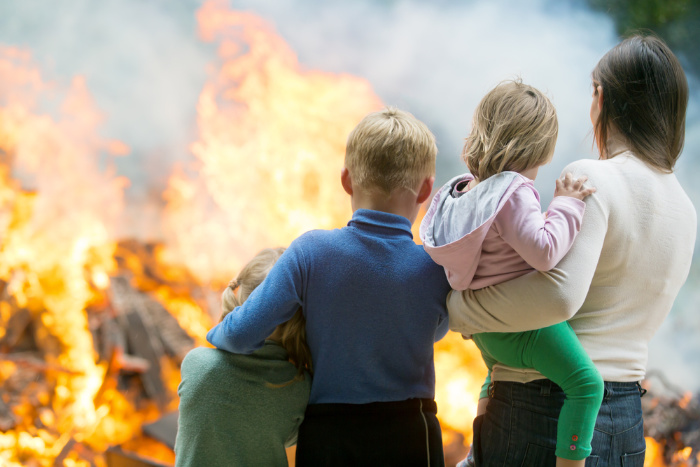

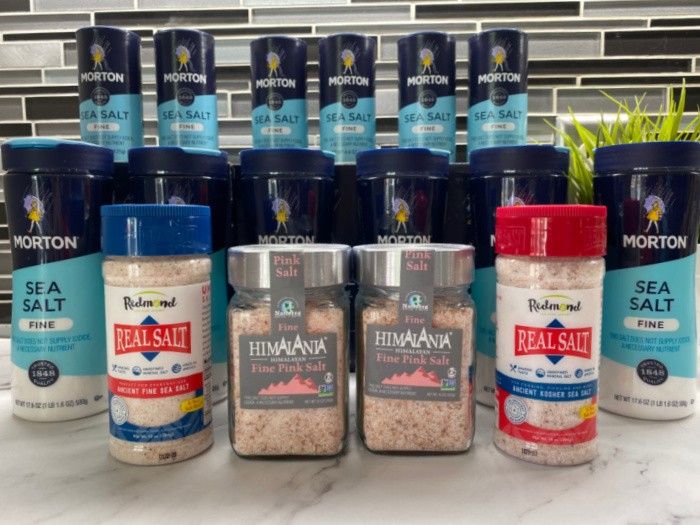
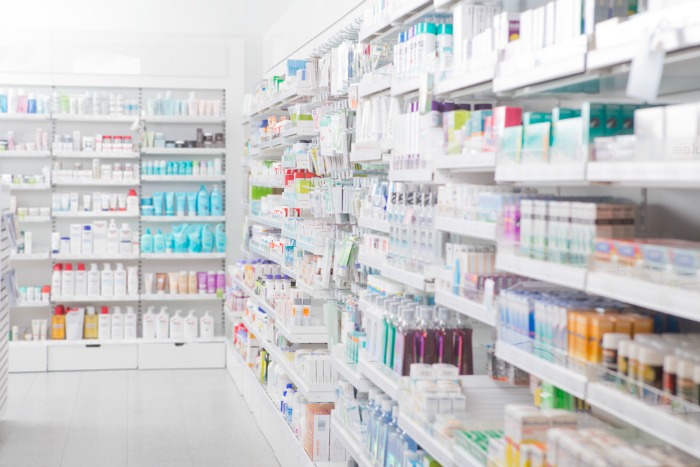
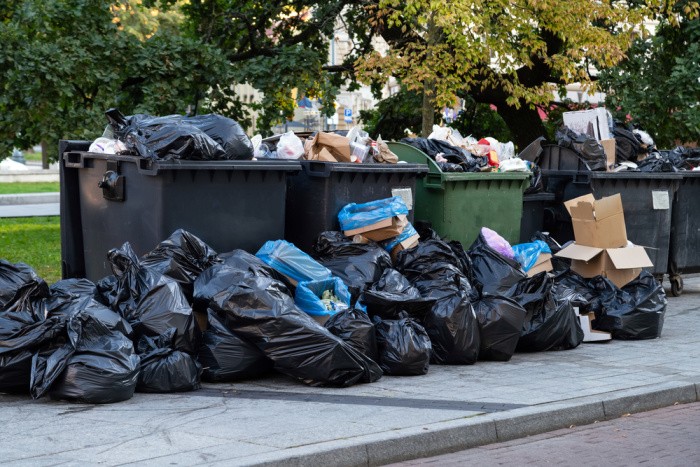

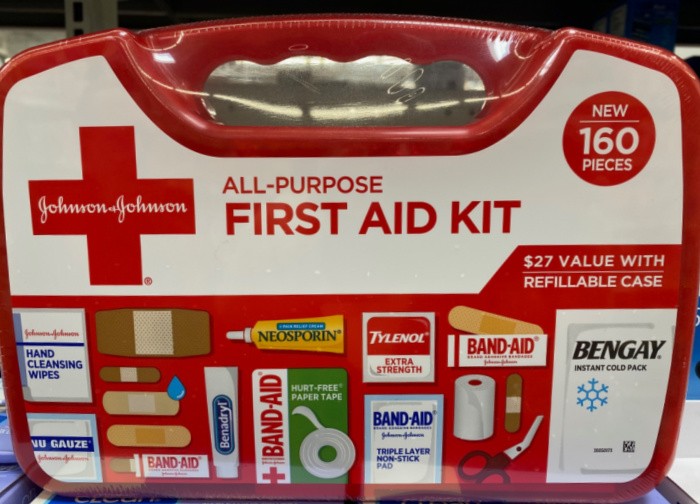
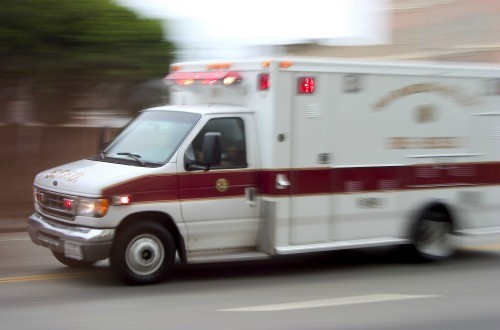













Linda ~
On the subject of mental health – we need to first see to our own mental health after a disaster. Part of that, I feel, is being prepared in the first place. What a stress relief it is to know that I am ready for nearly anything! I still am not sure how I will react mentally in those situations that may arise. I have put some thought into it, however, and feel that I am prepared to act/react in a stable way but the actuality may be something quiet different.
Something that I have in my preps is a Bible. As a Bible believing Christian, I feel that having that to turn to in an event will help my mental stability. In just about any event (minor as well as major) I have found that if I just say to someone, “Let’s pray.” I am very rarely turned down. I was involved in an event a couple of years ago serving a very large number of homeless. And I profess that I am a weakling when it comes to praying outloud!! Anyway, my job was to distribute bottles of water to a line up of a couple hundred homeless people waiting to be served in this event. As I distributed water, I simply said, “Let’s pray.” Many of the people said they weren’t Christians but none of them turned down prayer.
I think that something that needs to be added to the list – Use the person’s name! It is not just enough to speak to them – using their name adds another dimension to our interaction. If we are just involved with our neighbors and we know who they are by name – still use their name. If we are involved with people we do not know, asking their name and using it changes how they act/react to us and what we are bringing to the table.
I did like the statements to avoid. Some people believe that when we empathize we are saying that we understand. I am a very empathetic person but I cannot come close to “knowing” how or “understanding how” another person feels. Even if I have been or am in the same situation, I cannot know/understand how THEY are feeling. I can only know how I am feeling.
Great post as always.
Hi Leanne, I love having comments from readers, it helps us all to think about things. I’m adding “say their name” to my post. Great comment! Linda
One thing that all the off-grid doctors I have taken classes from, or whose books I have read, have recommended is having meclizine (Dramamine), Benadryl, or doxylamine succinate (an OTC sleeping aid) on hand for mild anxiety issues post-disaster. Of course, I wouldn’t recommend passing them out like candy, but we have them for family. We like to think we’re all pretty resilient and well-prepared and will handle a crisis well, but it never hurts to be prepared just in case.
You said there are key phrases to calm people down—but you didn’t include them. You listed what NOT to say, but didn’t give examples of what TO say.
Can you please provide some examples?
Thank you!
Susan
Hi Susan, you may want to look under this paragraph: Seven phases after a disaster. They are pretty simple and easy. For example, using your own voice, the first one would be, FACTUAL: “We are all aware of the flooding that has hit our neighborhood today.” 2. SHARE YOUR OWN THOUGHTS: “I’m very concerned about the flooding, but we can get through this if we work together.” REVIEW STRESS: 3. We can see that a few people may have anxiety, fear, some may not be able to sleep.” Susan, I think that this will come easy for some people to take charge and others may become agitated and angry. This is why it is critical we meet together as a neighborhood and make plans before an emergency arises. Linda
THANK YOU!
Guess I missed that part (had a phone call). Greatly appreciate the fast response!
Have a great day!
Hi Susan, no problem! Happy Friday! Linda
Another great article, Linda. I find I’m often surprised by how people react to individual crises that happen in the here and now. I’m always curious about how people react to a mass crisis, tho we don’t see many stories of this (like the fires in CA, hurricane affected areas, etc).
Individual perceptions and reactions are based on previous life experiences or from what they’ve heard, I think. I’ve seen people who’ve had a ‘run of bad luck’ all their lives deal very well with a major crisis (like, this is “just one more thing” as they trudge along). Then there are those same type people who just seem to lose it, as this ‘one more thing’ just freezes them.
I do worry about the younger people who take anti-anxiety meds already, when we live in normal times.
I so agree with being factual about what’s going on, and some sort of short-term plan would offer relief.
Your list of phrases brought to mind one I Absolutely hate: ” you got this!” Well, what’s the alternative, for Pete’s sake?!?
I did chuckle when I read “things could be worse”: where I live, this is often a Response to the question ‘how are you?’, no matter how Bad the situation. But, it would be considered rude to use as a comforting statement. As a response, it’s meant to be an optimistic thing.
Thanks for reminding us about mental health issues.
Hi Wendy, great comment! I had to giggle about “you got this.” Sometimes I really wish I had gone to college and gotten a degree in conversation reaction or whatever we could call it. I have so much empathy I want to say the right thing. I would never hurt anyone intentionally by my words. I worry about the anxiety meds as well, wow. May God bless this world. Linda
I received this article from a CERT team member who attended my “Disaster Preparedness” and “Disaster Psychology” courses recently. Your synopsis is very accurate and your “additions” are very insightful.
Leanne’s comment that being prepared personally is important is more than on point. Those of us that are “preppers” know that we can’t be 100% prepared for EVERY emergency, but being prepared as best we can for any emergency puts us in a position of being able to help our neighbors because we are already in the “mental place” of knowing we can survive whatever happens and can bring that confidence to our neighbors when “stuff” happens.
Jennifer’s additions are beneficial to me as I haven’t heard this before. That’s the beauty of the internet, we can all share ideas that will be important when (sadly, not if) it happens.
Thank you for your efforts to enlighten us. Keep up the good work.
Hi Paul, thank you for your comment, I love it! We do indeed learn from each other by sharing ideas over the internet. We must be prepared for the unexpected in order to be in a good “mental place.” Once a prepper, always a prepper, Linda
We personally lost a home in the 1980’s to a house fire and it was a total gut punch. Thankfully, we still had 3 out of 4 of our parents and had access to their copies of the most important pictures. Losing priceless, irreplaceable pictures was the hardest part of our experience. Since then all pictures are scanned and downloaded to flash drives and distributed to secondary locations. Just a thought in your preparedness.
Hi Beth, that is terrible! Great tip on the flash drive! Back in the ’80s, we had negatives! That would have been so heartbreaking! I remember keeping the negatives in a bank safety deposit box, wow those were the days. I’m glad you and your family survived and that other family member had some of the pictures that are truly priceless. Linda
One thing to help with how you do after an emergency. Is to prepare in your mind how you’ll deal with event. Just thing of a situation and have a plan. In the 80’s I was in Army ROTC in college and had to walk about 8 blocks in downtown Minneapolis, MN in the early morning to the bus. As I was walking I’d figure out my escape plan if needed. Even today, we have a fire extinguisher in the kitchen and in the bedroom, in case we need it to get out.
We live in a hurricane/tornado area so I’m mentally prepared if something happens. Know what to grab. Flash drives are great to put things on, also you can use a Passport drive to put things on. Been working on a history book of Earth for my decedents since 2014 – so ALOT of info.
Hi Barb, good idea about making the history book for you decedents!!! You were smart back in the 80s tow walk 8 blocks and think about a plan to divert your walk if you had too! Smart lady, smart move! I’m glad you mentioned a fire extinguisher, mine got lost in the move and storage. It’s proobably in my daughters garage. I need to order a couple new ones, thank you! Great comment as always! Linda
I have been through multiple disasters of various types – hurricane force winds, flooding, mudslides, earthquakes, and now divorce. What you don’t understand until you have been in it is how the shock just freezes or numbs your mind – you won’t even remember some things like someone’s name, phone numbers, where you put something, etc. That is why you need to mentally work through your responses so you can rely on a trained pre-thought out response (in gun training it was called muscle memory). Also it’s important to have things written so you can look at the list when you are in shock and just follow it because your brain will have a hard time thinking through it. So make a list of what to do when an emergency event is forecast, easy foods/meals to prepare, what to do if there is a nuclear event warning, and even make a list of what of what preps you have for various things i.e. lights, cooking, heat, laundry, etc. and where they are located (also good so other family members can find them).
Disasters take a lot of energy – mental and physical. Get some easy to store OTC drugs to help i.e. melatonin, night time Tylenol, etc. Don’t be shocked when people shut down and prepare so you can start responding to the situation asap.
Hi Kay, wow, you have had a lot of experiences. These are great tips for others who will in fact be in shock, because they will shut down. We never know how a neighbor or friend will react after a disaster until you are working side by side in the aftermath. I’ve been there, we probably all have. Great insight, Linda
I always considered myself a strong person. We have kept a full pantry since the 1977 Blizzard that gave Western New York 7 feet of snow, in 7 days, on top of the 5 that was already there. I prepared for a full year for The New Millennium, even though it turned out to be nothing.
Unfortunately though, the COVID-19 pandemic did me in. I foolishly listened to too many “experts ” and failed to realize it was NOT about our health, but about power and control. Even now I tend to avoid crowds and public places. I use to be outgoing and loved meeting new people. Now, not so much. Please everyone, learn from my mistakes. God keep us safe.
Hi Chris, I can’t imagine 7 feet of snow in 7 days on top of 5 feet. WOW! I agree on the power and control! I’m with you on the crowds and public places. I rarely go out, it’s too much anymore. I get, my sweet friend. Although, today I might go get a McDonalds Happy Meal with my husband because the “Toy” in a shoebox with a Croc (Shoe) keychain. It just started today. I have the giggles so bad, I want one. God bless all of us, Linda